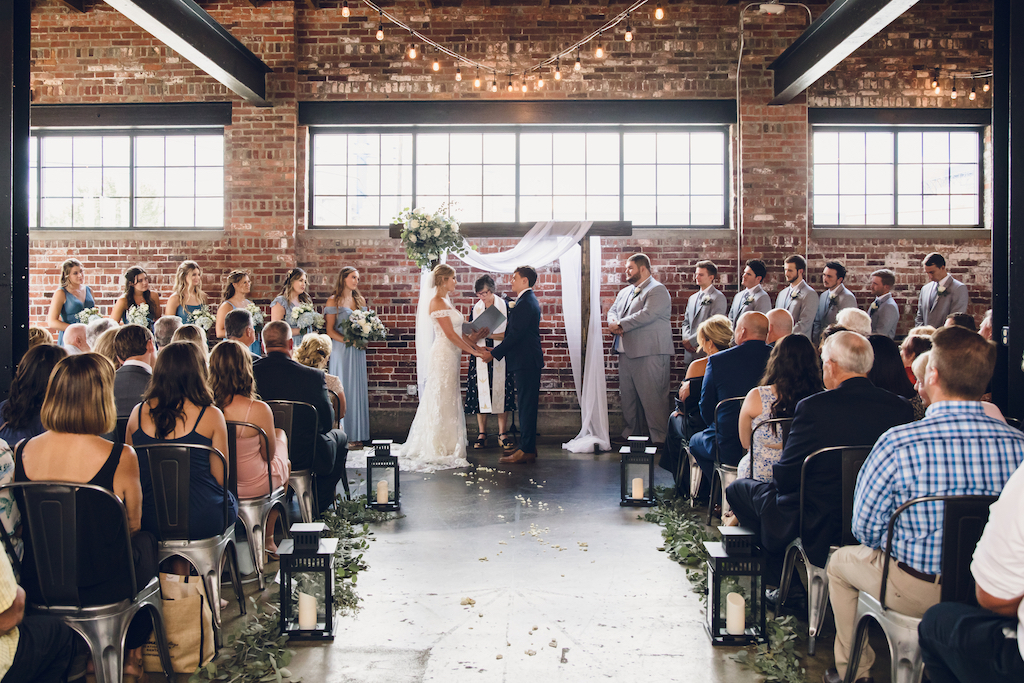The wedding and event landscape has greatly changed after the pandemic, with many new venues opening, given the pent-up demand.
The wedding industry is estimated to be worth a staggering $50 billion, so owning a wedding venue seems like a lucrative opportunity. The profitability of that investment, though, isn’t guaranteed and depends on a range of factors.
If you’re considering a wedding venue as a new venture, it’s critical to look at it from all angles and understand your resources — both financial and operational.
Let’s dive into whether owning a wedding venue can be profitable.
1. Market Demand
The demand for wedding venues remains strong, particularly in regions where the population is growing and there’s a vibrant wedding culture. However, it is critical to evaluate the number of competitive venues in a particular market, as that number has increased in many markets since the pandemic, making it more challenging to attract couples.
An increasing number of couples are opting for unique and customizable wedding experiences, creating a need for diverse venue options.
Will your new venue fill an unmet need in your market?
2. Revenue Streams
Owning a wedding venue opens the door to multiple revenue streams, including:
Venue Rental Fees: Charging for the space itself is the most straightforward revenue source. Understanding the market dynamics in terms of pricing is a critical first step in determining what your revenue potential may be.
Catering Services: Offering in-house catering can significantly boost both revenue and profits. If you are not ready to jump into offering your own catering services, you can partner with a few select catering companies and negotiate a commission structure in exchange for their preferred relationship with the venue.
Bar Services: Providing beverage options, whether in-house or through partnerships, can grow your revenue. However, it is critical to understand the legal landscape, including license type and availability and liquor liability, if you are going down this route, as each state has different requirements and restrictions, and the risks can be greater.
Planning Services: Offering planning services, from day-of coordination to full-service planning & design, can increase your revenue and improve your clients’ overall experience. Hiring individuals with experience with these services will be critical if you do not have the background.
Goods & Decor: Offering items such as draping, photobooths, yard games, and more can simplify your clients’ planning experience and increase your revenue.
Additional Events: Beyond weddings, consider hosting corporate events, parties, celebrations of life, and more to maximize usage and revenue. Non-wedding events can help book your weekdays that are not as popular as weddings. Understanding your potential new venue’s location relative to businesses and city/town populations will help you assess how much revenue you may be able to generate with non-wedding events.
Partnerships: As noted above, you may be able to develop relationships with preferred vendor partners, such as caterers and AV providers, to earn commission as you refer clients to their businesses.

3. High Initial Investment
Entering the wedding venue market requires a substantial upfront investment. Before signing a lease or purchasing a property, you should create a business plan that reflects the upfront costs needed to open the property and the ongoing costs to run the business.
The largest upfront costs tend to be:
Property Acquisition or Leasing: The price can vary significantly based on location and property but may require meaningful upfront cash. An SBA loan could be an option to explore to help fund this investment.
Renovations and Decor: Most spaces will require renovations to prepare them for hosting events. This includes a sufficient number of bathrooms for guests, a kitchenette to handle catering needs, client rooms, a built-in bar, and more. Tables and chairs, furniture for client rooms, and other decor items may also be needed.
Licenses and Permits: Ensuring your venue meets local regulations and use requirements takes both time and money.
Marketing: Developing a strong brand and online presence is crucial for attracting couples.

4. Operational Costs
Running a wedding venue is not immune to the increased inflation costs of late, and has made it more challenging to drive a profit.
The greatest ongoing expenses of running a wedding venue tend to be:
Staffing: You have a beautiful wedding venue, and now you need a team to help you run it. Determining who you need on your team is one of the most critical decisions you will make, as this has large implications for your overhead costs. You will need to evaluate what expertise you bring to the table – are you good at social media, or are you handy with repairs? Outline the roles you want to fill. It can be helpful to have hourly support to fill out specialty roles such as social media if you do not have that expertise yourself, as you will likely not be able to afford someone focused just on social media.
Utilities and Maintenance: Keeping the venue in top shape requires regular upkeep and utility payments.
Insurance: Protecting your investment with liability and property insurance is essential.
Understanding these costs is crucial for calculating profitability and developing a sustainable business model.
5. Seasonality and Competition
The wedding industry is highly seasonal, with peak months seeing a rush of bookings while off-peak months can be quiet. Managing cash flow during slower periods is vital.
It is helpful to build out a cash flow model to ensure that you have enough cash to endure the fluctuations.
Additionally, competition can be fierce, particularly in areas with numerous venues. To stand out, you need a unique selling proposition—whether it’s location, amenities, or exceptional customer service. As you build your business model, focus attention on your key differentiators and how you will win in the marketplace.
Trying to win on price alone is not a sustainable advantage and will put pressure on your profitability.
6. Building a Strong Reputation
Success in the wedding industry heavily relies on reputation. Positive reviews and word-of-mouth referrals are invaluable. Investing in excellent service, creating stunning aesthetics, and fostering good relationships with clients and vendors can lead to repeat business and referrals, ultimately enhancing your success and profitability.
7. Adapting to Trends
The wedding industry is constantly evolving. Staying informed about trends, such as eco-friendly weddings, micro-weddings, and unique themes, can give your venue an edge. Flexibility in adapting to these trends will help you meet client demands and maximize bookings.

Ready to Own a Wedding Venue?
Whether you want to own a wedding venue or already own one, you may need support to truly make it profitable. 828 Venue Management Company operates event venues across the nation and is an expert in the venue management space.
Contact us today to learn more about how we can help you with your wedding venue.



